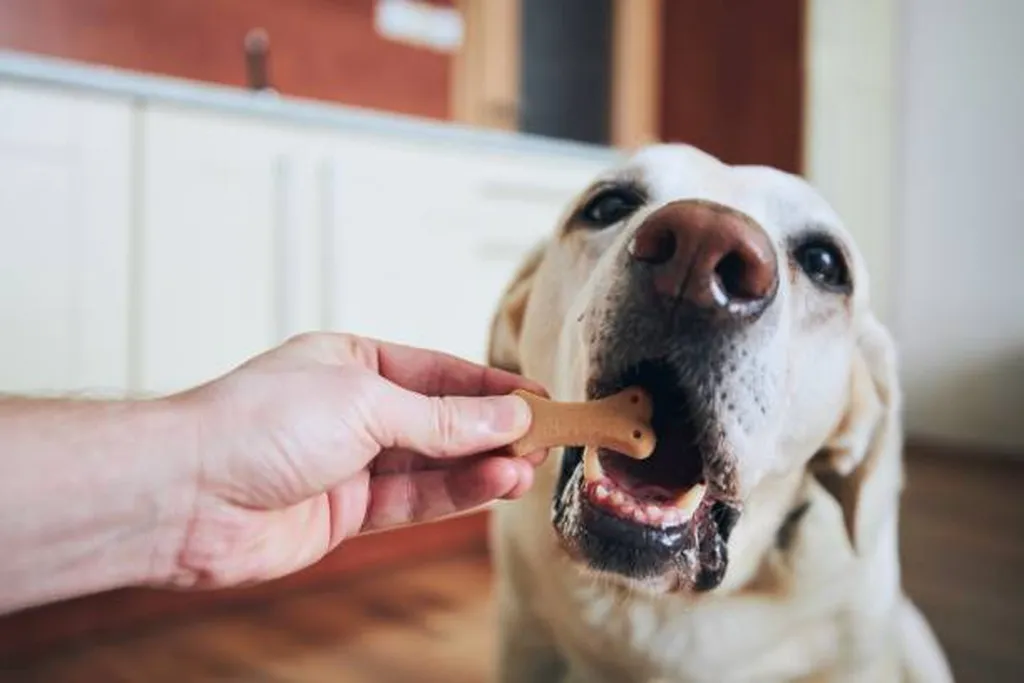The warm sun and longer days are wonderful for most of us, including our cold-blooded reptile friends who become more active during spring. It also stands to reason that we spend more time outdoors with our furry friends this time of year.
Because we live with rattlesnakes, understanding their behaviors, habitat, and other qualities can help prevent negative encounters – especially when you’re out on the trail with Spot.
Snakes, like other wild animals, want to avoid us as much as we want to avoid them. By learning more safety tips about rattlesnakes and pets, you can count on a happier spring for you, your companion, and the wildlife that abounds in our area.
How a Rattlesnake Can Harm Your Pet
While it may seem like a rare occurrence, over 300,000 cats and dogs are bitten by poisonous snakes each year in the United States. In fact, Texas is home to more venomous snakes than any other state, including cottonmouths, copperheads, and, of course, rattlesnakes.
Although encounters with such snakes are fairly rare in the downtown core of the city, they’re certainly a very real part of our world. Snakes can be found in natural areas, particularly among rocky outcrops, tall grasses, and other shady spots.
Rattlesnake venom is hemotoxic, meaning it affects a victim’s ability to coagulate blood, resulting in decreased clotting and uncontrolled bleeding. Symptoms of a rattlesnake bite include:
- Puncture wound
- Bleeding
- Swelling and/or bruising
- Weakness
- Noticeable pain
- Tremor
- Respiratory problems
- Blood pressure fluctuation
- Collapse
Symptoms become more severe as the poison makes its way through the system, so it’s extremely important to seek immediate emergency care if your pet is bitten.
Rattlesnakes and Pets: Preventing an Emergency
Fortunately, there are steps you can take to discourage deadly encounters between rattlesnakes and pets. To help keep your four-legged friend out of harm’s way, consider the following:
- Consider snake avoidance training. Training your working dog to avoid snakes all together is by far the best thing you can do.
- Vaccinate your dog against rattlesnake venom. We recommend this essential vaccine for dogs who spend any time outdoors and for those who accompany their owners out hunting, fishing, hiking, or recreating in nature.
- Avoid areas with tall grass, thick brush, rocky areas and dry areas around ponds.
- If snakes and wildlife have been a problem in the past, consider installing a block wall or other solid fencing around your yard.
- Cut back tall weeds and grasses around your home, and avoid overgrown or rocky areas when out walking with your pet.
- Keep pets inside if you’re unable to supervise them, and consider keeping your dog on a leash no longer than 6 feet at all times while on the trails.
- As a precaution in your dog’s working habitat, call around to local veterinary hospitals and locate which practices stock rattlesnake anti-venom. Anti-venom is expensive and has a short shelf-life but veterinarians in rural areas continuously see snake bitten dogs and some will stock it.
Rattlesnakes and Pets: After Snake Bite
- If you can safely take a picture or identify the snake, this will assist the veterinarian preparing a treatment plan for your dog.
- Do not do anything other than keep your dog calm and heart rate low by not allowing your pet to walk or run. Seek immediate medical attention.
- Do not do apply cold compresses, cut the snake bite area or try and suck out the venom. Do not use snake bite kits or anything other medical procedure.
- For any snake bite seek immediate medical attention. In the case of a rattlesnake bite, head to the veterinary practice whom you identified to stock the anti-venom. As a further precaution, call that veterinary practice again to make certain they still have anti-venom in stock and to let them know you are on your way with a rattle snake bitten dog.
By knowing the signs of a rattlesnake bite, you can act quickly on behalf of your fur friend. Since most rattlesnake encounters occur when a snake feels threatened, maintaining control over your pet and prohibiting barking or aggression is essential to keeping everyone safe.
For more information or to schedule your pet’s annual vaccines, please give us a call.


